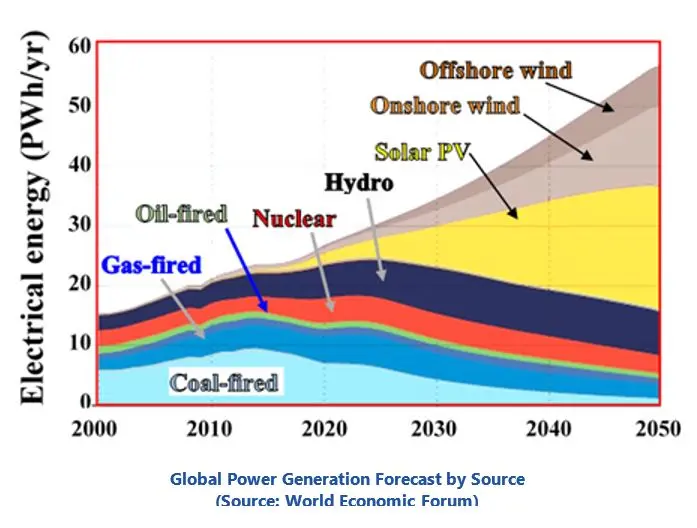

Keywords: ARC Industry Forum, Sustainability, Supply Chain, Process Industries, Energy Transition, Energy Services, Regulations, ARC Advisory Group.
Sponsored by Siemens Energy, ARC’s recent Orlando Forum workshop titled Building Sustainable Industrial Operations and Supply Chains Through Energy Transition served as an effective platform for discussing the intricate dynamics of the global energy transition and how sustainability is affecting almost every sector of industry and critical infrastructure. Featuring insights from ARC analysts and Darren McGuire and Edwin Castaneda of Siemens Energy, the workshop underscored the critical role of technological innovation, particularly in software and artificial intelligence (AI), in overcoming challenges related to decarbonization, grid stability, and the overall optimization of energy systems.
ARC analysts covered the impact of sustainability initiatives on the process industries, the impact of regulations, impact of sustainability on supply chain operations, integrating renewable power sources to the grid, and the development of long-term, sophisticated energy transition services. According to ARC’s recent annual survey of end users, sustainability is one of the top investment drivers today, with 80 percent of survey respondents indicating that they had a sustainability program in place, with half stating that they had a clear strategy for sustainability with clearly focused targets, priorities, and key performance indicators. The following is a summary of topics covered at the workshop session.
ARC’s vice president of research Larry O’Brien discussed the impact of sustainability on the heavy process industries, including oil and gas, refining, and chemical. The process industries are investing in sustainability through new processes and plants, net zero emissions, and circular economy.
Many new plants and facilities currently being built or planned in the process industries are the direct result of sustainability and energy transition initiatives. These include new processes for plastics recycling, hydrogen infrastructure construction, lower carbon footprint production processes, carbon capture and storage, and modular automation concepts designed to use less energy and be more repeatable.
The push to net zero emissions is also spurring many end users into redesigning and retooling existing facilities and processes to make them more sustainable. Dow’s major net zero upgrade of its Fort Saskatchewan ethylene complex is an excellent example of this, as well as new production processes for ammonia. Net zero is also driving increased investment in leak detection technologies, flaring control systems, robotic inspection, and continuous emissions monitoring systems (CEMS).
Automaton suppliers also view sustainability as a huge business opportunity. New processes and facilities require all new automation, including hydrogen infrastructure, electrification of offshore platforms, plastic recycling processes, carbon capture processes, and more. Existing manufacturing processes and assets must be optimized and modified for emission reduction, increased energy efficiency, and reduced cost. Every industry segment that ARC covers, from oil and gas to automotive, has a sustainability play.
ARC’s supply chain and logistics practice lead Chris Cunnane discussed the impact of sustainability initiatives on the supply chain. ARC covers logistics, warehouse management, and other supply chain related markets, and these are all being affected by sustainability as well. For example, many customers are now evaluating the sustainability metrics of their logistics providers, while logistics providers are implementing initiatives around route optimization, waste reduction, and other areas to increase energy efficiency.
The World Economic forum estimates that logistics accounts for about 5.5 percent of global GHG emissions. The warehousing and transportation sectors are both transitioning to renewable power sources and asset electrification. An increasing number of warehouses and logistics parks are switching to renewable forms of energy such as wind, solar, and even hydrogen in some of the proposed “hydrogen hubs” around the world.
Electric trucks are increasingly being used in last mile applications, and electric semi-trucks are already being used for long distance transportation. Warehouses are being designed to be more energy efficient, with enhanced insulation and energy efficient lighting systems. Logistics providers are also working to incorporate more recycling and reduce the amount of packing materials used. These opportunities also come with challenges, however, such as increased demand for electricity. The current highway infrastructure also cannot accommodate demand for semi-truck electric charging stations, and the average long-haul electric truck has a range of 500 miles maximum.

ARC’s senior consultant and renewable power industry lead Rick Rys addressed the US challenge for decarbonization in the electric utility industry and the regulatory landscape impacting utilities. The presentation showed how utilities are planning for a generation portfolio that includes significantly more solar and wind generation with retiring coal fired generation. Utilities will keep grids reliable with increasing renewables. Gaps in renewable generation will be estimated and there are a multitude of solutions utilities are using to keep grids reliable.
Rick’s discussion on regulations for US utilities illustrated the complexity of federal, state regional, and local regulations. The presentation focused on the three main issues regulations are attempting to address.
ARC Advisory Group clients can view the complete report at the ARC Client Portal.
Please Contact Us if you would like to speak with the author.
Obtain more ARC In-depth Research at Market Analysis

